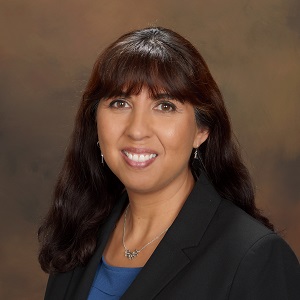Gracie Vargas - 2021 SPIE Women in Optics Planner
Professor, Department of Neuroscience Cell Biology and Anatomy
Biomedical Engineering and Imaging Sciences Group
The University of Texas Medical Branch, USA
SPIE Member
 |
Born in USA |
I seem to gravitate toward the sciences, particularly the physical sciences, and that drove me to pursue a physics degree. As I neared my junior year I discovered an interest in biomedical sciences but wanted to retain a physics/ engineering base. This eventually led to biomedical engineering. My love for biomedical optics specifically began when I took a course taught by Ashley J. Welch. I chose his lab for my PhD and never looked back since!
I serve as the principal investigator/ head of an academic research lab. Our work is centered on the application of biomedical optics in biology and human health. Our lab applies the techniques of nonlinear optical microscopy, confocal endomicroscopy, and widefield fluorescence imaging for the study of injury and disease processes and as potential tools in noninvasive diagnostics.
Looking back I now recognize there were challenges encountered as a consequence of my being a woman and, more so, an underrepresented minority, which I did not necessarily see when I was in the thick of it. I continued to pursue my interests at each and every step of the way. Those ‘hard to pin down’ challenges factor in even now, but like always, I simply keep moving forward.
One piece of advice I wish I’d known is you can pursue the opportunities to be recognized for your work. When I was young, nominations for awards came without thought, but that changes when you are in your career. This is not to say to lobby for awards, but rather know that is it okay to let others know you are open for nominations. I also wish I had mentoring on being more assertive and showing confidence in approaching opportunities. I was so very shy and almost afraid to verbalize my career wants and needs.
So bring your full talents to the table and don’t worry if they don’t exactly match those you see in those around you. If you have a genuine interest in a STEM career, then you bring your unique background to the field – a diversity in experiences and backgrounds only benefits the field. Your spin may be the one needed to make a substantial difference.